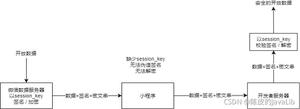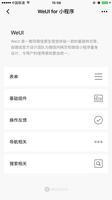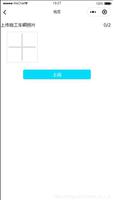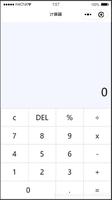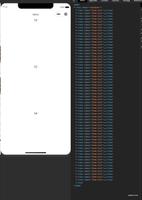微信小程序 数据交互与渲染实例详解
微信小程序 数据交互与渲染
实现效果图:
微信小程序的api中提供了网络交互的api,我们只要调用即可和后端进行数据交互,该api为wx.request.,具体代码如下。
//list.js
//获取应用实例
var app = getApp()
Page({
data: {
list:[],
hiddenLoading: true,
url: ''
},
loadList: function () {
var that = this;
that.setData({
hiddenLoading: !that.data.hiddenLoading
})
var url = app.urls.CloudData.getList;
that.setData({
url: url
});
wx.request({
url: url,
data: {},
method: 'GET',
success: function (res) {
var list= res.data.list;
if (list == null) {
list = [];
}
that.setData({
list: list,
hiddenLoading: !that.data.hiddenLoading
});
wx.showToast({
title: "获取数据成功",
icon: 'success',
duration: 2000
})
},
fail: function (e) {
var toastText='获取数据失败' + JSON.stringify(e);
that.setData({
hiddenLoading: !that.data.hiddenLoading
});
wx.showToast({
title: toastText,
icon: '',
duration: 2000
})
},
complete: function () {
// complete
}
}),
//事件处理函数
bindViewTap: function () {
wx.navigateTo({
url: '../logs/logs'
})
},
onLoad: function () {
},
onReady: function () {
this.loadList();
},
onPullDownRefresh: function () {
this.loadList();
wx.stopPullDownRefresh()
}
})
在loadList函数中进行了网络请求,请求的数据放到了data的list中。我们使用setData来修改list,在该函数调用之后,微信小程序的框架就会判断数据状态的变化,然后进行diff判断,如果有变化就渲染到界面中。这个与react.js的渲染方式相似,主要是内部维护了一个类似于虚拟文档的对象,然后通过对虚拟文档的判断来呈现界面,这样可以大大提高性能。
这里我们还做了一个下拉刷新的触发,即onPullDownRefresh函数,为了能够使用下拉刷新,我们需要进行配置,现在我们只需要当前页面生效,所以只要在对应页的json中配置即可,即在list.json中配置。
list.json
{
"navigationBarTitleText": "产品列表",
"enablePullDownRefresh":true
}
如果需要所有的页面的生效,可以在app.json中的window中配置。
app.json
{
"pages":[
"pages/index/index",
"pages/logs/logs",
"pages/list/list"
],
"window":{
"backgroundTextStyle":"light",
"navigationBarBackgroundColor": "#fff",
"navigationBarTitleText": "WeChat",
"navigationBarTextStyle":"black",
"enablePullDownRefresh":true
}
}
在app.json中,还有一个pages,我们需要路由的页面都需要在这里注册,否则无法路由到。
在请求数据的时候,加入了等待和获取成功失败的提示。这需要相应的页面配合,页面代码list.wxm.如下
<!--list.wxml-->
<view class="container container-ext">
<!--默认隐藏-->
<loading hidden="{{hiddenLoading}}">正在加载</loading>
<scroll-view scroll-y="true">
<view>
<block wx:for="{{list}}" wx:key="no">
<view class="widget">
<view>
<text >{{item.no}}({{item.content}})</text>
</view>
</view>
</block>
</view>
</scroll-view>
</view>
/**list.wxss**/
.widget {
position: relative;
margin-top: 5rpx;
margin-bottom: 5rpx;
padding-top: 10rpx;
padding-bottom: 10rpx;
padding-left: 40rpx;
padding-right: 40rpx;
border: #ddd 1px solid;
}
/**app.wxss**/
.container {
height: 100%;
display: flex;
flex-direction: column;
align-items: center;
justify-content: space-between;
box-sizing: border-box;
padding-top: 10rpx;
padding-bottom: 10rpx;
}
感谢阅读,希望能帮助到大家,谢谢大家对本站的支持!
以上是 微信小程序 数据交互与渲染实例详解 的全部内容, 来源链接: utcz.com/z/352224.html

